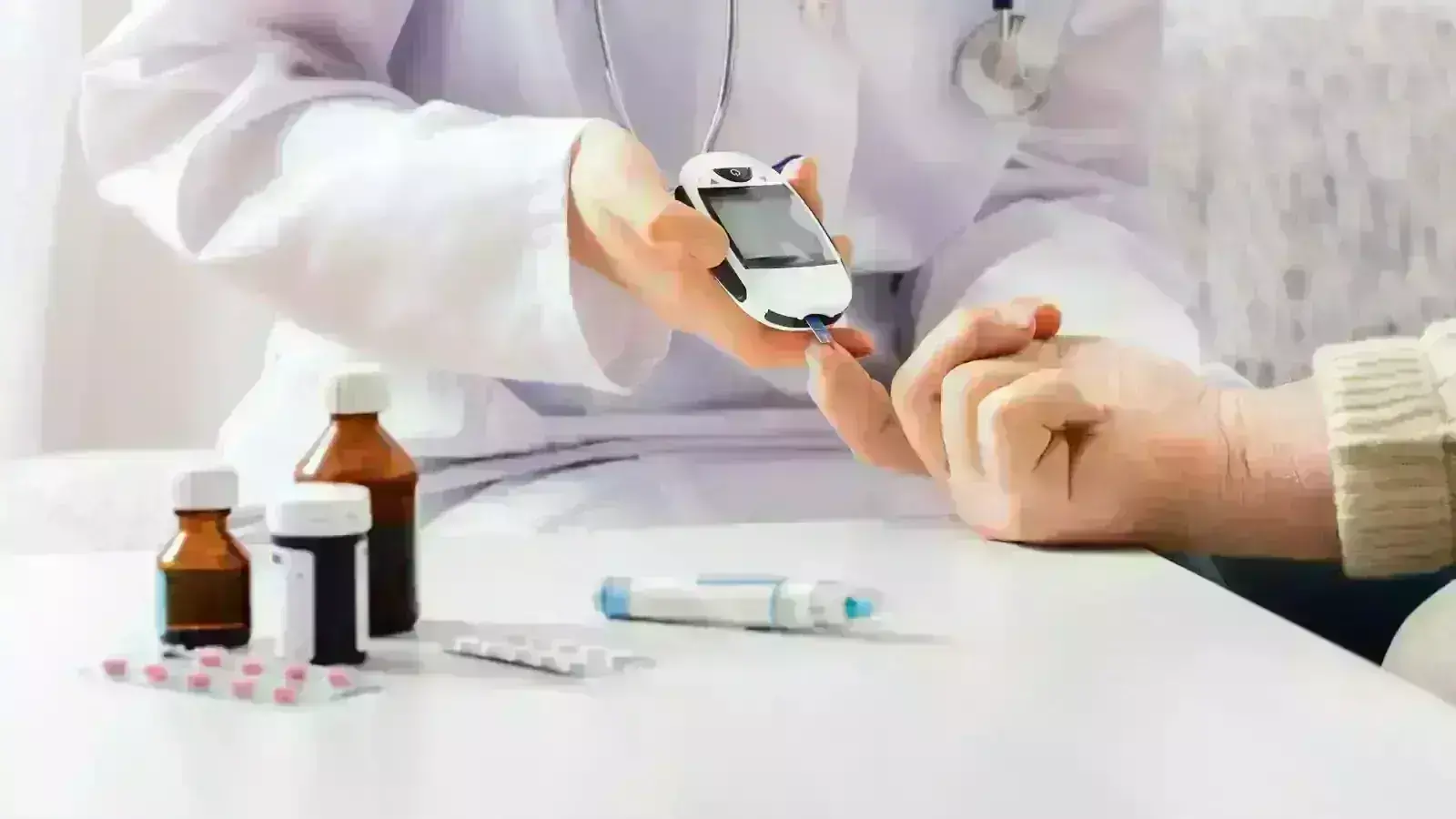- Home
- Medical news & Guidelines
- Anesthesiology
- Cardiology and CTVS
- Critical Care
- Dentistry
- Dermatology
- Diabetes and Endocrinology
- ENT
- Gastroenterology
- Medicine
- Nephrology
- Neurology
- Obstretics-Gynaecology
- Oncology
- Ophthalmology
- Orthopaedics
- Pediatrics-Neonatology
- Psychiatry
- Pulmonology
- Radiology
- Surgery
- Urology
- Laboratory Medicine
- Diet
- Nursing
- Paramedical
- Physiotherapy
- Health news
- Fact Check
- Bone Health Fact Check
- Brain Health Fact Check
- Cancer Related Fact Check
- Child Care Fact Check
- Dental and oral health fact check
- Diabetes and metabolic health fact check
- Diet and Nutrition Fact Check
- Eye and ENT Care Fact Check
- Fitness fact check
- Gut health fact check
- Heart health fact check
- Kidney health fact check
- Medical education fact check
- Men's health fact check
- Respiratory fact check
- Skin and hair care fact check
- Vaccine and Immunization fact check
- Women's health fact check
- AYUSH
- State News
- Andaman and Nicobar Islands
- Andhra Pradesh
- Arunachal Pradesh
- Assam
- Bihar
- Chandigarh
- Chattisgarh
- Dadra and Nagar Haveli
- Daman and Diu
- Delhi
- Goa
- Gujarat
- Haryana
- Himachal Pradesh
- Jammu & Kashmir
- Jharkhand
- Karnataka
- Kerala
- Ladakh
- Lakshadweep
- Madhya Pradesh
- Maharashtra
- Manipur
- Meghalaya
- Mizoram
- Nagaland
- Odisha
- Puducherry
- Punjab
- Rajasthan
- Sikkim
- Tamil Nadu
- Telangana
- Tripura
- Uttar Pradesh
- Uttrakhand
- West Bengal
- Medical Education
- Industry
Repaglinide and exercise rehabilitation effective combo for treating diabetes

Repaglinide plus exercise rehabilitation is an effective combination therapy to treat diabetes, according to the latest study published in the Disease Markers.
Diabetes, a common endocrine and metabolic disease in clinical practice, generally manifests a certain defect in insulin secretion due to several factors, thereafter leading to a metabolic disorder such as hyperglycemia. This study was conducted to explore the clinical effects of repaglinide combined with exercise rehabilitation on improving the blood glucose of patients with diabetes.
In this retrospective study, 100 patients with diabetes treated in our hospital from January 2018 to January 2020 were assessed for eligibility and recruited. They were assigned at a ratio of 1 : 1 to receive either repaglinide (control group) or repaglinide plus exercise rehabilitation (experimental group). Outcome measures include fasting blood glucose, 2 h postprandial blood glucose, glycosylated haemoglobin, time to normal blood glucose, blood glucose fluctuation, insulin dosage, adverse reactions, and blood glucose adequate rate.
Results:
All eligible patients showed similar pretreatment fasting blood glucose, glycosylated haemoglobin, and 2 h postprandial blood glucose (P > 0.05). After treatment, repaglinide plus exercise rehabilitation resulted in lower levels of fasting blood glucose, glycosylated haemoglobin, and 2 h postprandial blood glucose versus repaglinide alone (P < 0.05). Repaglinide plus exercise rehabilitation was associated with a significantly shorter time to normal blood glucose and a milder fluctuation versus repaglinide (P < 0.05). The incidence of adverse reactions and blood glucose adequate rate was 6% and 94% in the experimental group and 50% and 52% in the control group, respectively (P < 0.05).
Thus, Repaglinide plus exercise rehabilitation results in effective blood glucose control and reduced incidence of adverse reactions and yields a promising efficacy, so it is worthy of clinical promotion and application.
Reference:
Clinical Effects of Exercise Rehabilitation Combined with Repaglinide in the Treatment of Diabetes by Yan Li et al. published in the Disease Markers.
https://pubmed.ncbi.nlm.nih.gov/35371345/
Keywords:
Yan Li, Xi Wang, Ying Zhang, Clinical Effects, Exercise Rehabilitation, Combination, Repaglinide, Treatment of Diabetes, Disease Markers, adverse reactions, blood glucose control, efficacy, fasting blood glucose
Dr. Shravani Dali has completed her BDS from Pravara institute of medical sciences, loni. Following which she extensively worked in the healthcare sector for 2+ years. She has been actively involved in writing blogs in field of health and wellness. Currently she is pursuing her Masters of public health-health administration from Tata institute of social sciences. She can be contacted at editorial@medicaldialogues.in.
Dr Kamal Kant Kohli-MBBS, DTCD- a chest specialist with more than 30 years of practice and a flair for writing clinical articles, Dr Kamal Kant Kohli joined Medical Dialogues as a Chief Editor of Medical News. Besides writing articles, as an editor, he proofreads and verifies all the medical content published on Medical Dialogues including those coming from journals, studies,medical conferences,guidelines etc. Email: drkohli@medicaldialogues.in. Contact no. 011-43720751


